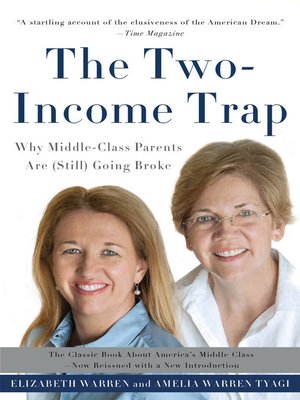
Sign up to save your library
With an OverDrive account, you can save your favorite libraries for at-a-glance information about availability. Find out more about OverDrive accounts.
Find this title in Libby, the library reading app by OverDrive.



Search for a digital library with this title
Title found at these libraries:
| Library Name | Distance |
|---|---|
| Loading... |
From #1 New York Times bestselling author Senator Elizabeth Warren and consultant Amelia Warren Tyagi, the classic book about America's middle class — and why economic security remains out of reach for many.
In this exposé, Elizabeth Warren and Amelia Warren Tyagi show that modern middle-class families are increasingly trapped by the grinding reality of flat wages and rising costs. Warren and Tyagi reveal how a ferocious bidding war for housing and education has silently engulfed America's suburbs, driving up the cost of keeping families in the middle class, and placing unprecedented pressure on hard-working families.
Revolutionary when it was first published in 2003, The Two-Income Trap remains disturbingly relevant today. Now with a new introduction by the authors, The Two Income Trap shows why the usual remedies won't solve the problem and points toward the policy changes that would create better opportunities for both parents and children.
In this exposé, Elizabeth Warren and Amelia Warren Tyagi show that modern middle-class families are increasingly trapped by the grinding reality of flat wages and rising costs. Warren and Tyagi reveal how a ferocious bidding war for housing and education has silently engulfed America's suburbs, driving up the cost of keeping families in the middle class, and placing unprecedented pressure on hard-working families.
Revolutionary when it was first published in 2003, The Two-Income Trap remains disturbingly relevant today. Now with a new introduction by the authors, The Two Income Trap shows why the usual remedies won't solve the problem and points toward the policy changes that would create better opportunities for both parents and children.







